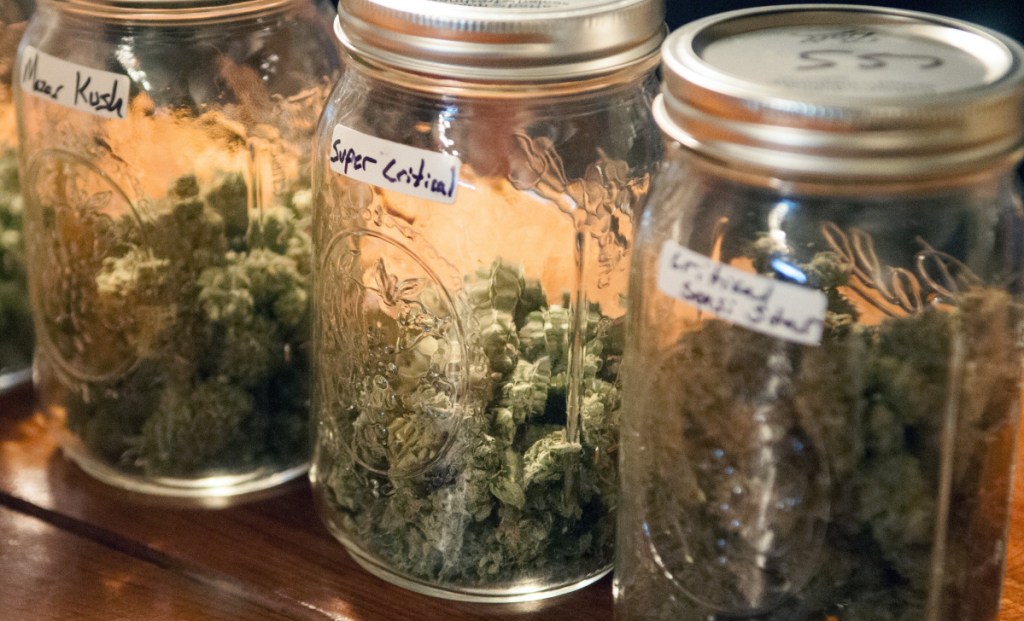The legalization of marijuana use for adults has achieved a critical mass. Some 33 states have now approved marijuana for medical purposes, and another 10 have legalized recreational use; Maine is among the states where both are legal.
There have been some half-hearted efforts to stem the tide. Former U.S. Attorney General Jeff Sessions instructed federal prosecutors in 2017 to strictly enforce federal laws against marijuana possession, but the prosecutors essentially ignored him.
It’s not a great stretch to envision that, within a few years, federal law will be amended to remove marijuana from the Food and Drug Administration’s “Schedule 1,” covering drugs “with no accepted medical use” — where it never belonged. Voters have responded to the widespread testimony by patients seeking pain relief, saying that marijuana does relieve their symptoms, and represents a safer alternative for chronic pain than the opioids that have inflicted so much needless suffering on the people of this state and nation.
Meanwhile, states — and their municipalities — are trying to figure out how to implement legalization, and it was perhaps predictable that the process wouldn’t be smooth, given the patchwork way the laws were enacted in Maine by referendum, then amended by the Legislature.
In central Maine, Hallowell has become a pioneer in granting retail licenses for recreational sales, although guinea pig might be a more accurate term.
Under the state’s medical marijuana regimen previously in force, kicked off by a 2009 referendum, the drug was available through caregivers and dispensaries for approved patients. That changed with a 2016 referendum for full legalization, which was, however, so poorly drafted that it took lawmakers nearly two years to sort it out — aggravated by obstruction from the former governor, who vetoed the results twice before lawmakers finally overrode him.
Under the enacted law, medical marijuana caregivers are allowed to open retail shops for patients; two opened up in Hallowell. Many towns and cities are still in the moratorium phase on recreational pot, but Hallowell decided to forge ahead, and to allow two such establishments downtown. They were to be licensed by the town for both recreational and medical marijuana, though they would have to wait for state licenses on the recreational side.
In December, there were three applicants, and through a lottery, one of the existing two business owners was out of luck. But when the City Council held a licensing hearing last week, one of the prospective license holders, Derek Wilson, didn’t attend, and thus was unable to demonstrate to councilors why he was of “good moral character” — a requirement under the licensing law — after councilors became aware of a 25-year-old disorderly conduct conviction.
Because Wilson was not issued a license to sell recreational marijuana, under the council’s new rules, he also lost his ability to operate his medical marijuana shop. The other applicant, with no retail presence on Water Street, was granted a license despite six previous convictions, including theft and trafficking of a scheduled drug, which she evidently explained to councilors’ satisfaction.
The council then granted a license to the applicant left out by the December lottery, filling the quota of two. And there the matter apparently rests, unless someone takes the matter to court.
Much of the confusion could have been avoided had the LePage administration written the state rules for medical and recreational sales that should be guiding local decisions. Hallowell was probably unwise to proceed without those rules, which will now presumably be forthcoming from the Mills administration.
Yet there will doubtless be more bumps in the road on the way to legalization. Prohibition of alcohol lasted just 14 years before the federal constitutional amendment that authorized it was repealed.
Prohibition of various natural, though mind-altering substances like marijuana has lasted a full century, and will be harder to undo. For instance, the distinction between medical and recreational use that Maine’s new law tries to preserve may ultimately be untenable.
Since New England’s Puritans helped found the country, it’s been hard for many Americans to accept that the same substances may be used both for therapeutic reasons and because, well, they’re pleasurable. In the 19th century, many drugs banned today, including opium, were ingredients in “patent medicines” and were used, without fuss, by quite respectable members of society. Why, exactly, people used them was left up to the individual citizen.
We’ve had a century of dubious legal decisions concerning a substance like marijuana, that — whatever its downsides – will never kill millions of Americans from cancer and heart disease, like cigarettes, or shatter countless lives the way alcohol does.
It will take time, and a further shifting of social attitudes, before we get to the point where a marijuana shop on Water Street in Hallowell excites no more comment than a wine store. But it would be a good place to be.
Douglas Rooks has been a Maine editor, opinion writer and author for 34 years. His latest book is “Rise, Decline and Renewal: The Democratic Party in Maine.” He welcomes comment at: drooks@tds.net
Send questions/comments to the editors.



Success. Please wait for the page to reload. If the page does not reload within 5 seconds, please refresh the page.
Enter your email and password to access comments.
Hi, to comment on stories you must . This profile is in addition to your subscription and website login.
Already have a commenting profile? .
Invalid username/password.
Please check your email to confirm and complete your registration.
Only subscribers are eligible to post comments. Please subscribe or login first for digital access. Here’s why.
Use the form below to reset your password. When you've submitted your account email, we will send an email with a reset code.